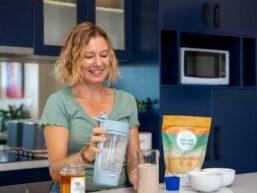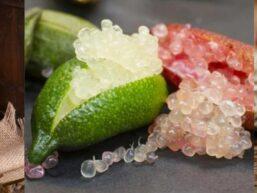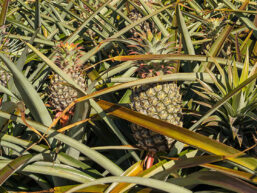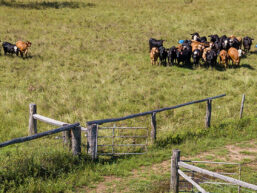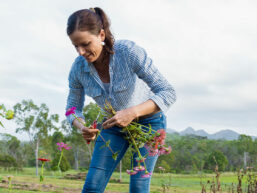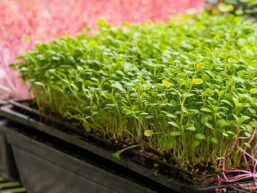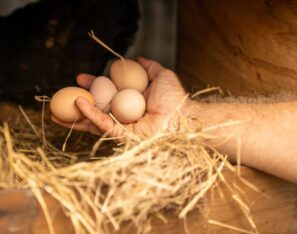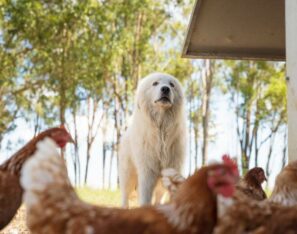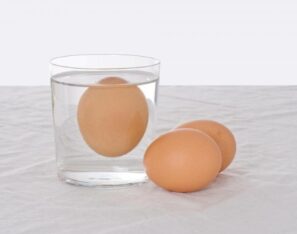Related Posts
Chooks Eat Your Greens
31 May 2021 / Food Facts
Everything You Need to Know About Eggs
As you wander through the supermarket aisles, you may find yourself bombarded with clever marketing and advertising strategies with nutrition labels and health claims typically at the forefront. This is especially true when it comes to that very useful kitchen staple, the humble egg. When it comes to eggs, the options seem endless with boxes of cartons piled up with different prices, sizes and ethical claims.
Rather than suffering decision fatigue and just grabbing the closest carton, read on to find out more about the difference between caged, free range and pasture raised eggs. Which is better for your health and the chooks?
Cage Eggs
Many farmers use cages to reduce biosecurity risk as well as the incidence of disease and therefore have the ability to reduce their antibiotic use. A hen will spend her whole life (18 months) inside a cage, usually with artificial lighting and no room for socialising or stretching. Although arguably not a good life for a chook, the eggs are typically cheaper than their free-range or pasture raised counterparts and so represent an affordable source of protein for low-income families.
Free-range
Not all free-range farms are created equal. Free-range farms typically vary with a maximal allowance of one hectare per 10,000 chooks. Free-range hens have unrestricted access to an outdoor range for a minimum of eight (8) hours per day during summer and a minimum of six hours a day in winter. While this chook may have a slightly better life than her caged featured friend, with room to stretching and socialising, her eggs will be correspondingly more expensive. In addition, consumers may misinterpret the free-range label as pasture raised. Typically, a free-range bird does not have the luxury of fresh grass, although the outdoor area must be maintained to minimise muddy conditions which often results in the bird’s area being gravel or concrete.
Pasture raised
Pasture raised chooks like those at Dynamic Eggs situated along Lake Mary are allocated one hectare per 1,500 chooks and are given the freedom to roam and bask in the sunlight on grassy pastures before returning to their sheds at dusk to roost. These sheds keep them from harmful predators and are rotated through the paddocks to ensure the chooks receive the best pasture and the soils and grasses are not depleted. While they represent the most expensive form of eggs, you can have solace in knowing these chooks are given the best possible life.
The Grass is always Greener
Carotenoids are plant pigments commonly associated with orange vegetables and leafy greens and grass is no exception! They include beta carotene – a precursor to Vitamin A. Healthy chooks require healthy diets with carotenoids providing exceptional health benefits with improvements of the egg quality and colour, health of the bird’s skin, beak and feathers and a reduction in the stress of the bird. Grasses that are high in cellulose also improved the health of the dietary system of the chook which makes for a healthy happy bird with no tummy upsets.
Chooks ideally need a diet containing a mix of carbohydrates, protein and fats, with greens comprising around 15% of their daily diet – equivalent to about a small handful per bird. It is common knowledge that pasture-raised chooks have beautifully coloured yolks with no need for yolk enhancers, but did you know they have many additional health benefits for the consumer also?
Research conducted over the last decade has found that hens that foraged on pastures averaged a 38% higher concentration of vitamin A and 23% higher vitamin E within the yolks. Long-chain omega-3 fatty acids were twice as high as their caged friends and the total omega–3 fatty acid concentration were 2.7-fold higher than in the caged hens eggs.
How to tell if an egg is fresh?
The float test is an easy way to tell if your eggs are fresh, rather than subjecting your nose to a rotten egg smell.
- Fill a glass of water;
- Place the egg into the glass;
- If it sinks, it is fresh and can be used;
- If it floats, it is a bad egg. This is because as the egg starts to go ’off’ decomposition occurs which gives off gases. As more of the egg decomposes, more of its mass is converted to gas. This forms an air bubble within the egg before slowly escaping through the porous shell into the atmosphere.
You can tell how fresh your egg is by how it settles in the water.
- If the egg lies horizontally, it is at its freshest;
- If the narrow end of the egg tilts upward, the egg is still usable, but not quite as fresh. An egg that tilts would be good to use for meringue (yes, older eggs do make better meringue!);
- If the egg stands upright (but is still at the bottom of the container), it’s past its peak, but is still safe—use these eggs for baking or hard-boiling: If the egg floats? Get rid of it!
Cholesterol and Eggs
Cholesterol is a type of lipid that is essential for cellular membranes, Vitamin D, hormones and bile acids within the body. Cholesterol is often broken up into two types, good cholesterol (HDL) and bad cholesterol (LDL).
It was once thought that eating foods high in dietary cholesterol causes high blood cholesterol levels. What we now know is that eating foods high in dietary cholesterol like eggs does not directly impact blood cholesterol. To reduce your bad cholesterol levels, focus on reducing or limiting foods that are high in saturated fat (eg. cakes, fried foods, confectionary) as this is seen as a bigger risk for high cholesterol.
Eggs are an economical and nutrient-rich food with good quality protein along with other vitamins and minerals. Two eggs have around the same number of kilojoules as a tub of yoghurt or a small tin of salmon and make the perfect snack! The Australian Dietary Guidelines suggests enjoying up to seven (7) eggs per week as a part of a healthy, balanced diet.
Look no further than Dynamic Eggs for farm fresh pasture raised eggs and start incorporating more eggs into your diet today.


